Different Types of Content Writing Services: An In-Depth Guide
In today’s digital era, content is the driving force behind online marketing strategies, branding, and business growth. Companies, brands, and individuals alike rely on well-crafted content to engage their target audiences, build trust, and boost visibility. However, content writing is not a one-size-fits-all endeavor; there are various types of content writing services tailored to meet specific objectives. Each form of content serves a unique purpose, requiring specific writing styles, tones, and approaches.
1. SEO Content Writing
SEO (Search Engine Optimization) content writing focuses on optimizing written content to rank higher on search engine results pages (SERPs). The goal is to improve a website’s visibility and drive organic traffic by targeting relevant keywords and adhering to SEO best practices. SEO content writers not only write high-quality content but also ensure that it is search-engine-friendly.
Key elements of SEO content writing include:
- Keyword research and placement
- Creating engaging and valuable content for readers
- Crafting compelling meta descriptions and titles
- Internal and external linking strategies
- Optimizing headings, images, and overall readability
Who needs SEO content writing services? Businesses looking to increase their online visibility, improve search engine rankings, and drive more organic traffic can benefit from SEO content writing. This service is commonly used for blog posts, website pages, and landing pages.
2. Blog Writing
Blog writing is one of the most popular and versatile forms of content creation. Blogs are typically informal, conversational pieces of writing that provide valuable information on various topics. Whether you’re looking to share news, insights, or tips, blogs are an excellent way to engage readers, drive traffic to your website, and build authority in your industry.
Characteristics of blog writing:
- Engaging and easy-to-read format
- Informal tone that connects with the audience
- Useful, informative, and sometimes entertaining content
- Internal links to related topics
- Regular updates to keep content fresh
3. Website Content Writing
Website content writing involves creating content for the pages of a website, such as the homepage, about us, services, and product pages. The primary goal of website content is to provide clear and concise information while maintaining a brand’s tone and voice. This type of content needs to be informative, engaging, and persuasive to encourage visitors to explore further or take action.
Essential aspects of website content writing:
- Clear and easy-to-understand language
- Proper formatting and structure
- Branding consistency
- Call-to-actions (CTAs) to encourage conversions
- SEO optimization for better ranking
4. Copywriting
Copywriting is a specialized form of writing focused on creating persuasive, action-driven content. The purpose of copywriting is to convince readers to take a specific action, such as purchasing a product, signing up for a newsletter, or clicking on a call-to-action (CTA). Copywriting is often used in advertising, marketing campaigns, and sales content.
Characteristics of copywriting:
- Persuasive and engaging language
- Short and impactful sentences
- Focused on the benefits and value to the customer
- A clear and compelling CTA
- Adaptable to different platforms (e.g., emails, ads, social media)
5. Technical Writing
Technical writing involves creating content that explains complex technical information in a clear and concise manner. It is primarily used for user manuals, guides, software documentation, white papers, and technical blogs. Technical writers specialize in making technical jargon accessible to a broader audience without sacrificing accuracy.
Key aspects of technical writing:
- Clarity and precision
- Focus on step-by-step instructions
- Use of industry-specific terminology when necessary
- Detailed and well-structured explanations
6. Ghostwriting
Ghostwriting involves writing content for someone else who will take the credit for the work. Ghostwriters are often hired to write books, articles, blogs, or even social media posts on behalf of individuals, businesses, or thought leaders. The client provides the ideas, and the ghostwriter crafts the content in the client’s voice.
Key characteristics of ghostwriting:
- Adopting the client’s tone, style, and voice
- Carefully collaborating with the client to comprehend their vision
- Confidentiality and non-disclosure agreements
7. Academic Writing
Academic writing focuses on producing research papers, essays, theses, dissertations, and other scholarly content. Academic writers need a strong command of the subject matter, as well as an ability to present information logically and with proper citations.
Characteristics of academic writing:
- Formal tone and structure
- Well-researched and evidence-based content
- Proper citation and referencing
- Critical analysis of ideas and arguments
8. Content Editing and Proofreading
Content editing and proofreading services ensure that written content is free of errors and adheres to high standards of quality. Editors review the content for clarity, structure, tone, and flow, while proofreaders focus on fixing grammar, punctuation, and spelling mistakes.
Key features of editing and proofreading services:
- Ensuring consistency in tone and style
- Enhancing clarity and readability
- Correcting grammatical and typographical errors
- Rewriting awkward or unclear passages
9. Social Media Content Writing
Social media content writing focuses on creating short, engaging posts designed for platforms like Facebook, Twitter, Instagram, LinkedIn, and others. The content needs to be highly engaging, concise, and shareable, often with the goal of building brand awareness, driving engagement, and attracting followers.
Key elements of social media content writing:
- Short, attention-grabbing headlines or messages
- Use of hashtags and trending topics
- Conversational tone to engage the audience
- Visuals paired with the content (e.g., images, videos, memes)
- Consistent posting schedule
Conclusion:
The world of content writing is vast and varied, with each type of writing serving a specific purpose. Whether you’re looking to improve your SEO rankings, engage your audience through blogs and social media, or craft compelling marketing copy, there’s a content writing service tailored to meet your needs. Identifying the right type of content for your business can significantly impact your marketing strategy, brand reputation, and overall success. Hiring professional content writers for each of these categories can save time, improve quality, and ensure that your business communicates effectively with its audience.

